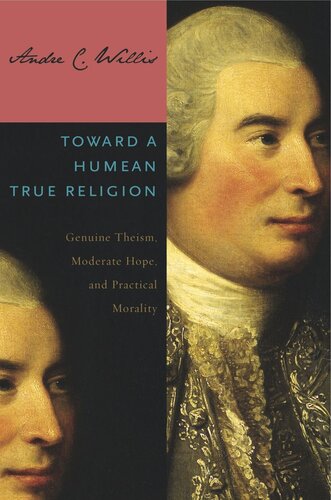

Most ebook files are in PDF format, so you can easily read them using various software such as Foxit Reader or directly on the Google Chrome browser.
Some ebook files are released by publishers in other formats such as .awz, .mobi, .epub, .fb2, etc. You may need to install specific software to read these formats on mobile/PC, such as Calibre.
Please read the tutorial at this link: https://ebookbell.com/faq
We offer FREE conversion to the popular formats you request; however, this may take some time. Therefore, right after payment, please email us, and we will try to provide the service as quickly as possible.
For some exceptional file formats or broken links (if any), please refrain from opening any disputes. Instead, email us first, and we will try to assist within a maximum of 6 hours.
EbookBell Team

0.0
0 reviewsDavid Hume is traditionally seen as a devastating critic of religion. He is widely read as an infidel, a critic of the Christian faith, and an attacker of popular forms of worship. His reputation as irreligious is well forged among his readers, and his argument against miracles sits at the heart of the narrative overview of his work that perennially indoctrinates thousands of first-year philosophy students. In Toward a Humean True Religion, Andre Willis succeeds in complicating Hume’s split approach to religion, showing that Hume was not, in fact, dogmatically against religion in all times and places. Hume occupied a “watershed moment,” Willis contends, when old ideas of religion were being replaced by the modern idea of religion as a set of epistemically true but speculative claims. Thus, Willis repositions the relative weight of Hume’s antireligious sentiment, giving significance to the role of both historical and discursive forces instead of simply relying on Hume’s personal animus as its driving force. Willis muses about what a Humean “true religion” might look like and suggests that we think of this as a third way between the classical and modern notions of religion. He argues that the cumulative achievements of Hume’s mild philosophic theism, the aim of his moral rationalism, and the conclusion of his project on the passions provide the best content for this “true religion.”